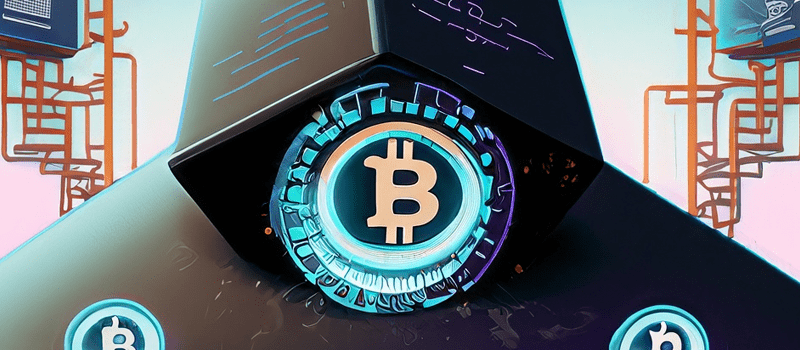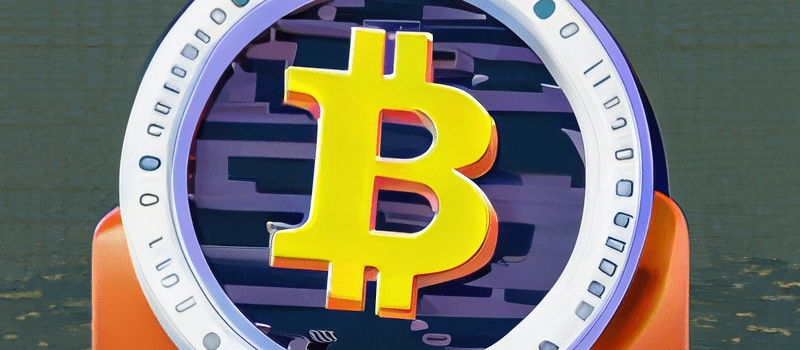Blockchain Security Certification: Courses in 2023
Welcome to the world of blockchain security certifications and courses in 2023, where the keys to unlocking the future lie in your hands. Join me as we delve into the fascinating realm of blockchain technology, exploring the latest advancements and equipping ourselves with the knowledge and skills needed to navigate this ever-evolving landscape with confidence and expertise.
Introduction to Blockchain Security Certifications
Blockchain technology has recently gained popularity, with cryptocurrencies like Bitcoin bringing it into the mainstream. However, as with any new technology, security is a major concern. Data breaches and hacking attacks can have disastrous consequences for organizations or individuals using blockchain-based applications.
Some key security risks associated with blockchain include:
- Private key theft – If an attacker gains access to a user’s private key, they can steal funds and assets from the associated wallet or account. Private keys must be safely stored and managed.
- Smart contract exploits – Errors or vulnerabilities in smart contract code can enable attackers to steal funds, lock users out of accounts, or cause other unintended behavior.
- 51% attacks – If a single miner or mining pool gains control of 51% of the hashing power on a Proof-of-Work blockchain, they can manipulate transactions and double spend coins.
- Node exploitation – Gaining unauthorized access to blockchain nodes can allow attackers to spoof transactions, alter data, or disrupt the network.
To help address these risks, there has been rapid growth in blockchain security certifications and training programs. These certifications aim to educate technology professionals on best practices for securing blockchain-based systems and applications.
Some popular blockchain security certifications include:
| Certification | Offered By |
|---|---|
| Certified Blockchain Security Professional (CBSP) | Blockchain Training Alliance |
| Certified Blockchain Security Expert (CBSE) | 101 Blockchains |
| C|BPSA – Blockchain Professional Security Analyst | EC-Council |
| Blockchain Security | Coursera |
| Blockchain Security | Udemy |
| Blockchain Smart Contract Security | SANS Institute |
This article provides an overview of the major blockchain security certifications available, key topics covered, and guidance on selecting the right certification for your career goals or organizational needs.
Overview of Major Blockchain Security Certifications
Various blockchain security certifications are available today from training companies, universities, and technology associations. Here is an overview of some of the most prominent certifications:
Certified Blockchain Security Professional (CBSP)
Offered by: Blockchain Training Alliance
The CBSP certification covers topics including:
- Cryptography and public/private key management
- Securing blockchain wallets
- Understanding threats like 51% attacks, DDoS, and sybil attacks
- Smart contract security best practices
- Privacy and anonymity on blockchain networks
It aims to provide a full understanding of blockchain security issues and how to mitigate risks. There are online self-paced and instructor-led training options available.
“CBSP is designed after comprehensive research and analysis of vital job roles in the industry. Gain practical knowledge of security considerations at each layer of blockchain technology stack.” – Blockchain Training Alliance
Certified Blockchain Security Expert (CBSE)
Offered by: 101 Blockchains
The CBSE program focuses on more advanced security topics including:
- Common blockchain attacks like double spending, flash loan attacks, and reentrancy
- Blockchain forensics
- Threat modeling and risk management
- Security architecture and design
- Hands-on investigation of smart contract vulnerabilities
It is geared towards technical professionals already familiar with blockchain fundamentals.
“Our updated CBSE course trains you to protect and secure blockchain networks, applications, and data.” – 101 Blockchains
Blockchain Security course on Coursera
Offered by: University at Buffalo
This introductory course on Coursera covers:
- Blockchain technology fundamentals
- Cryptography basics
- Public key infrastructure (PKI) management
- Key security threats like 51% attacks and Sybil attacks
- Security issues in blockchain wallets and smart contracts
It provides foundational knowledge for professionals new to blockchain security.
Here are some additional draft paragraphs for Section II:
Blockchain Security course on Udemy
Offered by: Simplilearn
This Udemy course provides an overview of core blockchain security topics including:
- Cryptographic concepts like hashing, digital signatures, and public/private key encryption
- Securing blockchain identities and wallets
- Consensus mechanisms and their vulnerabilities
- Smart contract security best practices
- Common attack types like DDoS, sybil attacks, and more
The curriculum aims to equip learners with the knowledge to secure blockchain applications and networks.
C|BPSA – Blockchain Professional Security Analyst by EC-Council
Offered by: EC-Council
The C|BPSA certification from EC-Council covers advanced blockchain security skills including:
- Threat modeling, risk assessment, and attack simulations
- Security testing methods like fuzzing and pen testing smart contracts
- Forensic analysis and incident response on blockchain networks
- Cryptographic weaknesses and workarounds
- Secure architecture design principles
It prepares cybersecurity professionals to protect enterprise blockchain implementations.
Blockchain Smart Contract Security course by SANS Institute
Offered by: SANS Institute
The SANS Institute course provides hands-on smart contract security training including:
- Identifying vulnerabilities like reentrancy, integer overflows, etc.
- Exploiting vulnerabilities through techniques like griefing and blockchain probing
- Using tools like MythX and Slither to audit Solidity code
- Best practices for secure Solidity programming
It delivers practical skills for auditing and exploiting smart contract bugs.
Choosing the Right Certification
When selecting a blockchain security certification, there are several key factors to consider:
Assess your current skill level
- Are you new to blockchain security or do you have prior experience?
- Are you a developer looking to build secure applications?
- Are you in cybersecurity and want to specialize in blockchain?
“Professionals looking for blockchain certifications to advance their career should start by identifying their current skill level.”
Match the certification to your existing knowledge so you don’t take a course that is too basic or advanced.
Review course outlines and topics covered
- Do the topics align with your knowledge gaps or career goals?
- Does the certification cover emerging subjects like DeFi security or NFT safety?
- Is the material vendor-neutral or specific to platforms like Ethereum?
“Look through certification outlines to find the best match for your learning objectives.”
Choose certifications that teach the specific skills you are looking to acquire.
Understand prerequisites and requirements
- Some advanced certifications expect prior blockchain experience.
- Make sure you meet any expectations for coding skills or security knowledge.
- How many hours of instruction and study are required?
“Before registering, be clear on what experience and prerequisites are needed for the certification.”
Don’t set yourself up for failure by attempting an advanced certification before you have the baseline skills.
Preparing for Certification
Once you’ve selected a blockchain certification, you’ll need to prepare for the examination. Here are some tips:
Use recommended study materials
- Certification providers often suggest courses, textbooks, labs or other study aids.
- These materials are tailored to the exam content.
“Leverage the official prep resources recommended for each blockchain certification.”
Sticking to the provider’s study guide can optimize your preparation.
Take practice tests
- Many certification programs offer practice questions or sample exams.
- Mimic real testing conditions when taking practice tests.
- Use them to identify knowledge gaps to focus on.
“Practice tests allow you to experience the exam format and identify areas for further study.”
Time yourself and don’t look up answers to get a true assessment.
Get hands-on practice
- Apply your skills through real-world projects or security testing.
- Develop and audit smart contracts or investigate mock attacks.
- Hands-on work reinforces conceptual knowledge.
“Beyond studying, look for ways to practice applying your blockchain security skills.”
Experience is invaluable preparation for certifications focused on applied skills.
Create a study plan
- Break exam content into topics and set a study schedule.
- Plan for areas you may need extra time on.
- Studying consistently is better than cramming.
“A detailed study plan can help you stay on track as you prepare for your blockchain certification.”
Allow enough time to cover all exam domains, identifying weak spots to focus on.
The Importance of Ongoing Learning
Gaining a blockchain security certification is an important first step, but the learning process does not end there. This field evolves rapidly, requiring ongoing education.
Stay on top of new developments
- Follow blockchain security news, blogs, forums, and thought leaders.
- Attend relevant conferences and workshops when possible.
- Engage with the blockchain community.
“Ongoing learning is crucial in blockchain security as threats and technologies continuously evolve.”
Make time each week to read, discuss, or experiment with new advancements.
Gain real-world experience
- Work on blockchain projects to apply your skills.
- Experiment with tools, protocols, and code.
- Learn from failures and challenges.
“Beyond formal education, real-world blockchain experience develops practical security expertise.”
Nothing replaces on-the-job learning in this fast-moving domain.
Renew or upgrade certifications
- Consider periodic recertification to validate your current knowledge.
- Higher-level certifications may be available as your skills progress.
- New specialty certifications are continually emerging.
“Re-earning or upgrading blockchain certifications demonstrates your dedication to staying current.”
Refreshing your certs shows employers your skills are kept sharp.
Ongoing blockchain education, experience, and certifications will keep your skills competitive. The learning never stops in this dynamic field.
Conclusion
Blockchain security certifications provide structured, validated training on protecting blockchain-based systems and applications. As interests in blockchain technology grows, so does demand for security skills.
The major certifications featured in this article offer both foundational and specialized knowledge for roles like:
- Blockchain security architect
- Blockchain security analyst
- Blockchain smart contract auditor
- Blockchain application developer
- Blockchain project manager
“Professionals looking to get into blockchain security or demonstrate their skills should consider certification pathways that align with their experience level and career goals.”
When selecting a certification, review course outlines, prerequisites, and topics covered to find the best program for acquiring or validating your capabilities.
While certifications are a key building block for a career in blockchain security, real-world experience and ongoing education in this rapidly evolving field are also essential. Consider pairing credentialing with hands-on practice, community engagement, and periodic renewal of your certifications.
“Blockchain security certifications can kickstart or advance your career. But you’ll need to commit to lifelong learning to stay at the cutting edge of this dynamic domain.”
The demand for blockchain security skills will only grow. A relevant certification can help you seize these opportunities and build expertise in protecting the blockchain applications of the future.





Responses